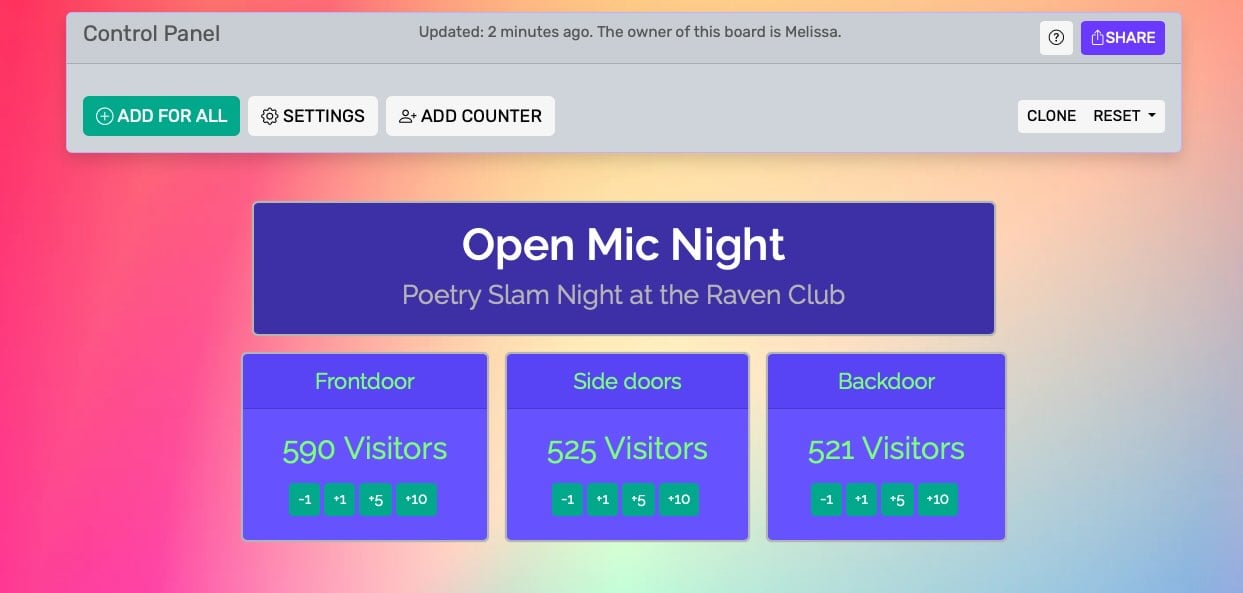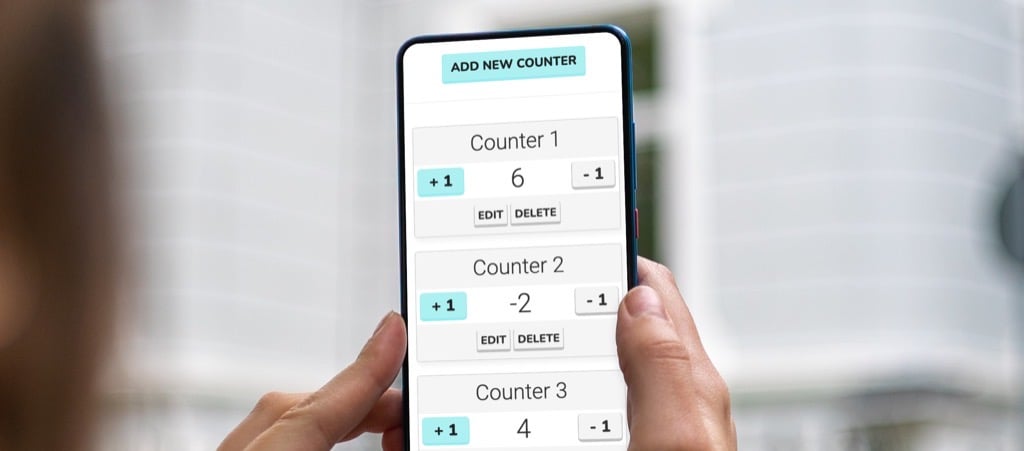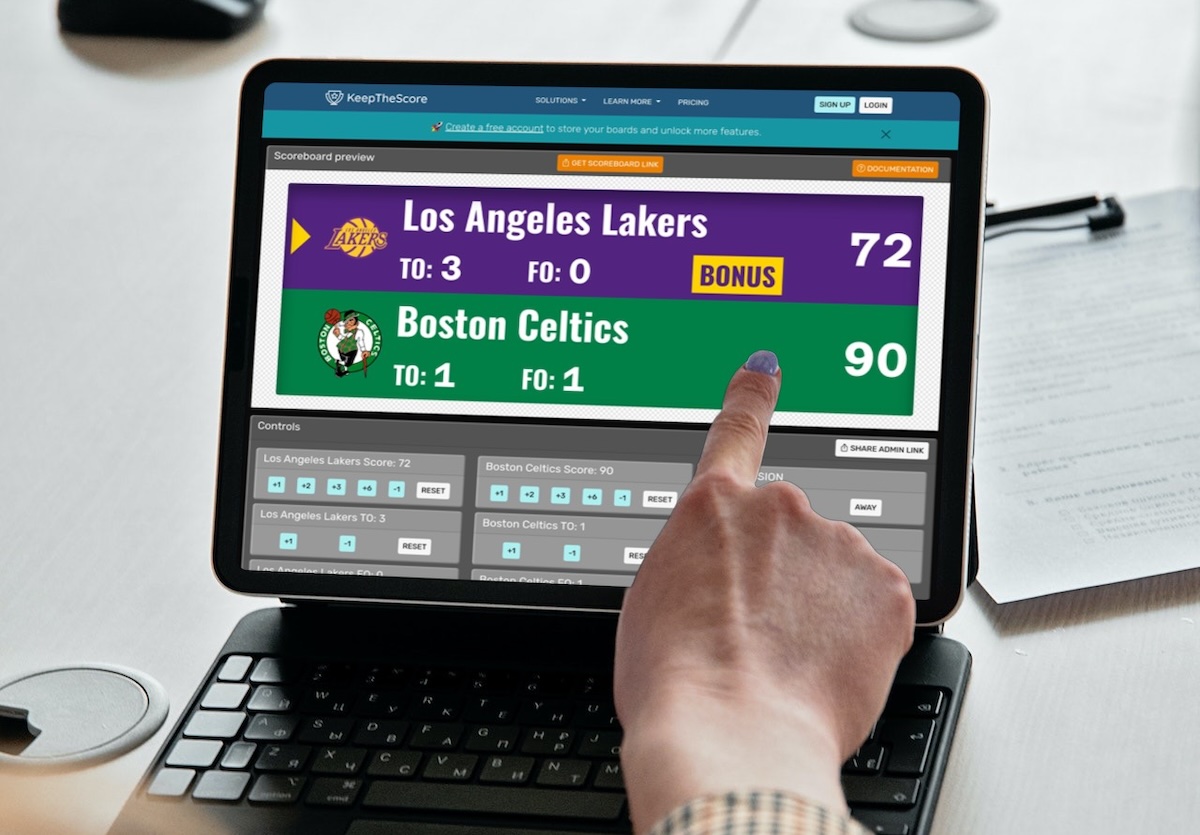What Is a Tally Counter?

A tally counter, also known as a click counter, is a device used for incremental counting of items, events, or occurrences. Traditional mechanical tally counters consist of a handheld metal or plastic case containing a button that advances a numbered display with each press. These devices typically feature a reset knob to return the count to zero.
Online tally counters replicate this functionality through digital interfaces accessible via web browsers or mobile applications. These digital versions maintain the core counting function while adding capabilities impossible with mechanical devices.
Advantages of Online Tally Counters
Digital tally counters provide significant operational advantages over mechanical alternatives:
1. Remote Accessibility
Online counters function on any internet-connected device including smartphones, tablets, and computers. This enables counting from multiple locations without physical presence requirements. Field workers, event staff, and distributed teams can contribute to the same count regardless of geographic location.
2. Real-Time Synchronization
Multiple users can simultaneously access and update the same counter with instant data synchronization. This eliminates discrepancies between different counting stations and ensures all stakeholders view current totals. Cloud-based storage prevents data loss from device failures.
3. Multi-Counter Management
Physical counters limit users to single counts per device. Digital platforms support unlimited simultaneous counters within one interface. Users can track multiple categories, locations, or time periods without juggling multiple devices.
4. Customization Capabilities
Online counters offer extensive personalization options:
- Custom counter names and descriptions
- Visual themes via templates
- Adjustable increment values
- Historical data tracking
- Export functionality for analysis
5. Public Display and Sharing
Digital counters generate shareable links, embed codes, and QR codes for public access. Organizations can display live counts on websites, digital signage, or social media platforms. This transparency enhances engagement for fundraising campaigns, attendance tracking, or competition scoring.
6. Enhanced Accuracy
Mechanical counters suffer from wear-related issues including skipped counts, misalignment, and reset failures. Digital counters eliminate mechanical failure points while providing audit trails and timestamp records for each increment.
7. Cost Efficiency
Online counters eliminate hardware purchase costs, replacement expenses, and maintenance requirements. Most platforms offer free basic functionality with optional premium features, reducing total ownership costs compared to purchasing multiple physical devices.
Common Use Cases for Online Tally Counters
Online tally counters serve diverse counting needs across industries and activities:
Event Management
Attendance tracking represents the most common application. Event organizers count guests entering venues, track capacity limits, and monitor attendance patterns throughout multi-day conferences. Multiple entrance points can feed into a single master count.
Business Operations
- Sales Activity Tracking: Count customer interactions, phone calls, or completed transactions
- Retail Traffic Analysis: Monitor store visitors during different hours or promotional periods
- Inventory Management: Track items during stock takes or shipment processing
- Quality Control: Record defects, passed inspections, or production quantities
Virtual queue management
Virtual queue management systems can be implemented using online tally counters. Read the linked post to find out more.
Recreation and Gaming
Board games, card games, and sports activities benefit from digital scorekeeping. Multiple players can track individual scores while maintaining running totals for team competitions.
 An online attendance counter tracking comedy show guests
An online attendance counter tracking comedy show guests
Research and Data Collection
Field researchers count observations, survey responses, or behavioral occurrences. Time-stamped data enables pattern analysis and statistical evaluation.
Implementing Online Tally Counters
Successful online counter implementation requires considering several factors:
Platform Selection Criteria
- Multi-User Support: Ensure simultaneous access without conflicts
- Mobile Optimization: Verify responsive design for field use
- API Availability: Check integration options for automated systems
- Data Export: Confirm ability to extract historical data
- Reliability: Evaluate uptime guarantees and backup procedures
 Professional online tally counter interface with customization options
Professional online tally counter interface with customization options
Quick Setup Process
Modern platforms enable counter creation within 30 seconds:
- Click the creation button above
- Name your counter and set initial value
- Choose display preferences and access permissions
- Share via generated link, QR code, or embed code
- Begin counting immediately without registration requirements
Distribution Methods
- Direct Links: Share URLs via email or messaging platforms
- QR Codes: Print for physical locations or event materials
- Website Integration: Embed counters using iframe or JavaScript
- API Access: Integrate with existing business systems
Best Practices
- Name Counters Clearly: Use descriptive titles indicating purpose and location
- Set Appropriate Permissions: Control who can view versus modify counts
- Regular Data Backups: Export counts periodically for record keeping
- Monitor Usage Patterns: Analyze peak counting times for staffing decisions
- Train All Users: Ensure consistent counting methodology across teams
Online tally counters transform simple counting tasks into collaborative data collection opportunities. The combination of accessibility, accuracy, and sharing capabilities makes digital counters essential tools for modern organizations tracking any quantifiable metric.



